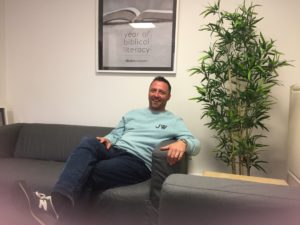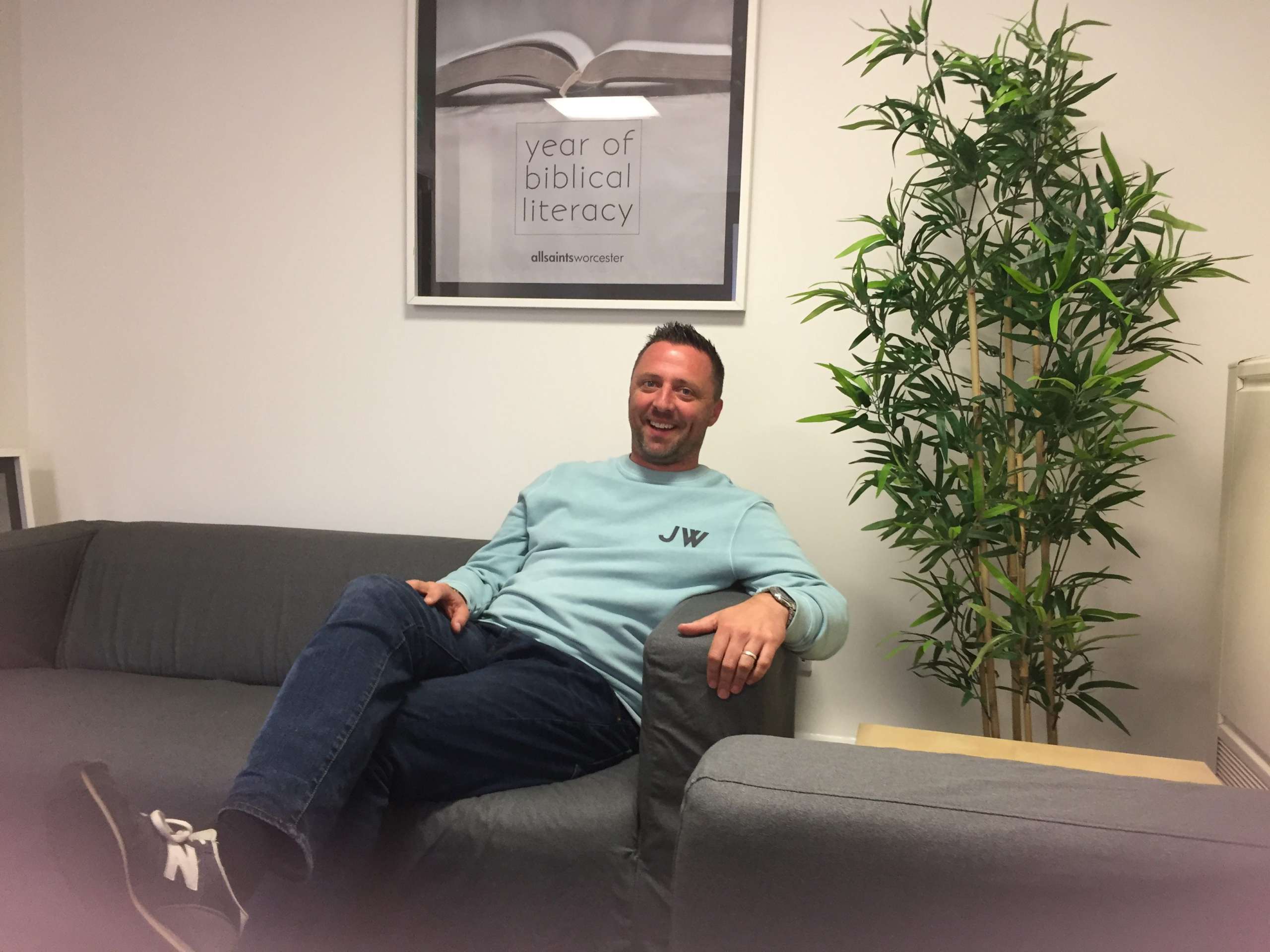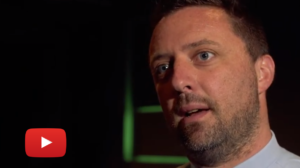The Rev Dr Rich Johnson talks about modern ministry and mental health

The parish of All Saints at the heart of Worcester city is one of the oldest in the city. It now uses two buildings. St Helen’s, a 15th century church building occupies a site used for worship since Roman times. You may have seen the scaffold wrap artwork on the High Street earlier this year, part of a Heritage Lottery Fund project that enabled much needed stonework repairs to be made. All Saints on Deansway is the historic parish church built into the city walls in Norman times. Worship services are now held in both buildings. Although the buildings are steeped in history, there is absolutely nothing old fashioned about this very modern pastoral team with it’s drive and enthusiasm for creating social support in the community.
The church is now one of the largest in the Diocese of Worcester, not only with many adults, but welcoming students, teenagers and children into the community. After the second world war many of the houses in the parish were demolished, scattering the previous community of dockers and porcelain workers and their families, so the congregation fell. Today the church, with its own distinctive style of less formal, contemporary worship, has gone from strength to strength.
Rich brings his own leadership style to his role, heading up a team of “brilliant” and committed individuals, whether they are volunteers or staff. He describes his methods as “equip, envision, empower and release”. He’s currently supporting Mark Smith of Lloyds Bank to give back to the business community as well as raising money for Mental Health UK. Mark has set himself a target for fundraising but also important to him is that business leaders and managers in his area know more about Mental Health issues and have some clear guidance to follow if necessary. It was at one of these seminars for business that I met Rich, who had come to both learn more from the speakers and to support Mark and his project. The seminars address practical steps such as how to spot potential problems in their own teams and how to provide the right supportive working environment to minimise the impact on that individual, their colleagues and their families.
By supporting others, All Saints seeks to serve the Worcester community in so many ways. A key question Rich asks when evaluating how the church is developing is “If we shut down overnight, would the city miss us?”. Increasingly, the answer is yes. Rich and his team work with people who have the vision, commitment and passion to succeed and help them with practical support to get projects started and developed. In this way the church set up and now runs the Worcester Foodbank, Worcester Street Pastors, supports homeless people, those fostering and adopting, schools, colleges and individual students with mental health resilience courses. The Foodbank even provides necessities such as school shoes and toys for birthdays and at Christmas to children whose families would otherwise genuinely struggle to get by.
The list of organisations where Rich and his team are known and respected is large and includes the County Council, local schools, Worcester Community Trust, Worcester BID, local business leaders, local MP’s, local police etc. By building networks across these organisations, the church is collaborating with others to help achieve something that is both worthwhile and makes a real difference to local people. Rich sees his role as a trusted partner not only to listen and participate but also to challenge. He talks to me about Desmond Tutu, who said “There comes a point where we need to stop just pulling people out of the river. We need to go upstream and find out why they’re falling in.” Because the Church is uniquely placed to talk with all these organisations, it’s able to bring its in-depth, local knowledge of the causes of the issues that adversely affect individuals and their families in modern life. This understanding allows them to ask the ‘awkward’ or ‘brave’ questions of politicians and civic authorities so that their decision making is better informed.
For so many people in need of social support networks, poor mental health is a common denominator. Rich works hard to listen and understand why so many people, not just our students, teenagers and young people are struggling. It’s clear that social media and the pressure of growing up in the public eye has much to answer for. Rich talks about digital addiction, hyperconsumerism, eating disorders, self-harming issues, anxiety and depression and believes it’s this central issue of defining our identity and who we are for ourselves that is important. We almost need to learn to define ourselves and our worth in society without constant reference to how we appear to others online. He plays a very active role in listening to youngsters, works closely with local schools, colleges and universities and some of his team actively provide support and counselling to help youngsters understand themselves better and be comfortable with their identity.
Striking the right balance between being helpful and being a prophetic challenge can be difficult and it’s possible for the public, outside the church, to dismiss the role of a church because it is often perceived as judgemental or interfering. Rich believes that to help someone you need to be there in the same room and to accept that no-one person or organisation will have all the answers. Their role is to offer some solutions, invite people in and become a part of the answer. For example, by listening to many young people who come to an individual drop in, he can give anonymous feedback to a school leader about issues that could be part of their Personal, Health and Social education (PSE) syllabus. Young people are therefore getting a chance to explore and learn about something that has affected or will affect them or their peers, so they are better prepared for the future. The team also talk to parents, for example by providing workshops helping parents understand how to help their kids navigate the digital world safely or attending a parents evening at a school. It’s exploring and implementing these very practical steps that have transformed this ministry.
“The first step to helping is to be empathetic” says Rich.” Everyone has experienced times when they are stressed, anxious or are feeling low in themselves. It’s when people are put in situations, often beyond their control, that cause a change from occasional worries into something more chronic and serious that they need more specialised help”. Many in society have lost the traditional family support networks, so the Church’s pastoral team need to be listening and thinking, ‘what can we do differently that will improve matters?’ because we are all in this together. By doing this humbly and consistently, over time, we build the credibility and permission to get involved.
This team certainly make a difference to Worcester and their work never stands still. After discussion with Mark Smith, he will be extending a very warm welcome to the business community with a special Carol service on 10th December at 6 o clock in All Saints – we hope to see many readers of this blog join us then.

